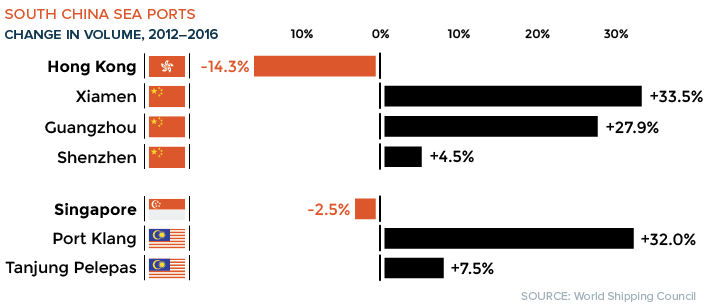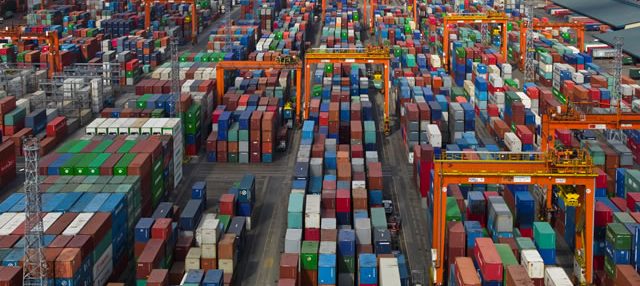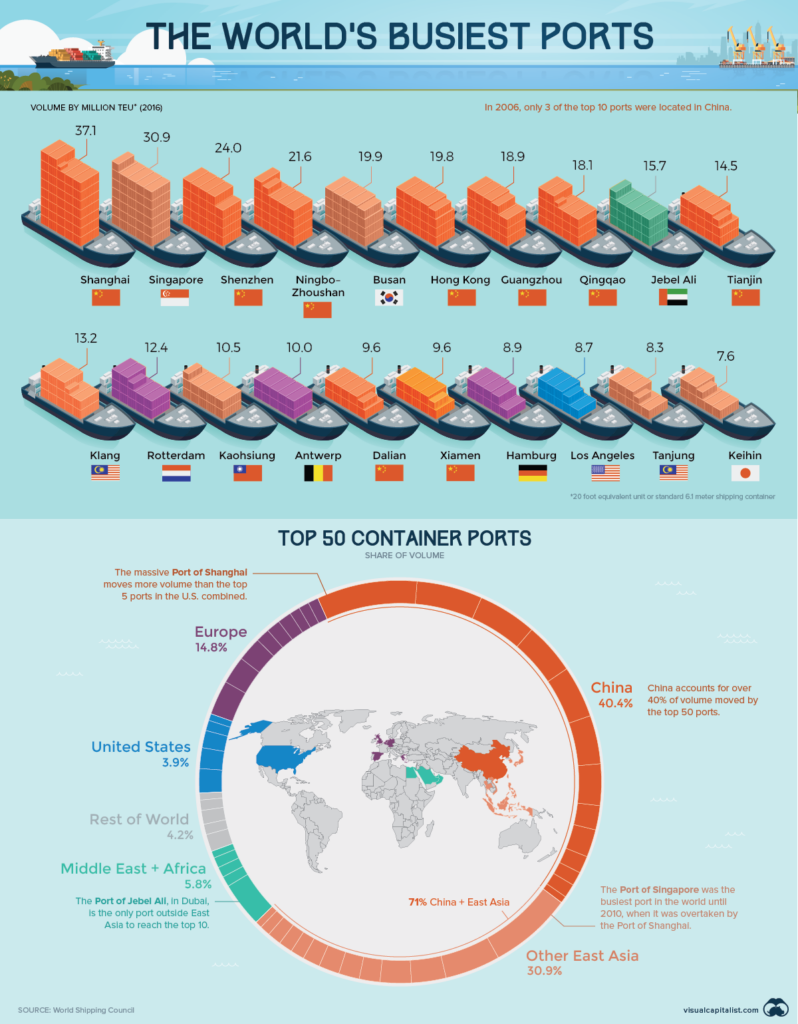As trade volumes continue to increase, the world’s busiest ports continue to grow larger and more efficient to meet demand. In just the last four years, the median annual volume of the top 50 ports jumped from 5.49 to 5.86 million TEUs. The World Economic Forum, in cooperation with Visual Capitalist, issued an infographic depicting the world’s busiest ports.
Only five of the top 20 ports in the world are now located outside of East Asia. The Port of Los Angeles is the only US entrant in the top 20, and only three European ports made the cut. Today, trade is more likely than ever to flow through the South China Sea.
While Danish company, Maersk, is still the largest shipping line, an ever increasing share of the world’s container traffic is moving through Chinese controlled ports. An estimated two-thirds of container traffic now passes through Chinese ports or ports that have received Chinese investment.
While shipping volumes on a global basis continue to rise, not all of that growth has been spread around equally. This is particularly true for established titans of the South China Sea.
At the outset of this millennium, Hong Kong and Singapore were home to the busiest ports in the world. Today, both are facing increased competition from neighboring ports, as well as declining volumes:

In contrast, the massive Port of Shanghai saw a 71% increase over the last decade, and many other Chinese ports has seen significant growth in volume in recent years.
If China’s One Belt One Road initiatives and investments in global port facilities are any indication, the country’s domination of maritime shipping will only continue to strengthen in the near term.


































































